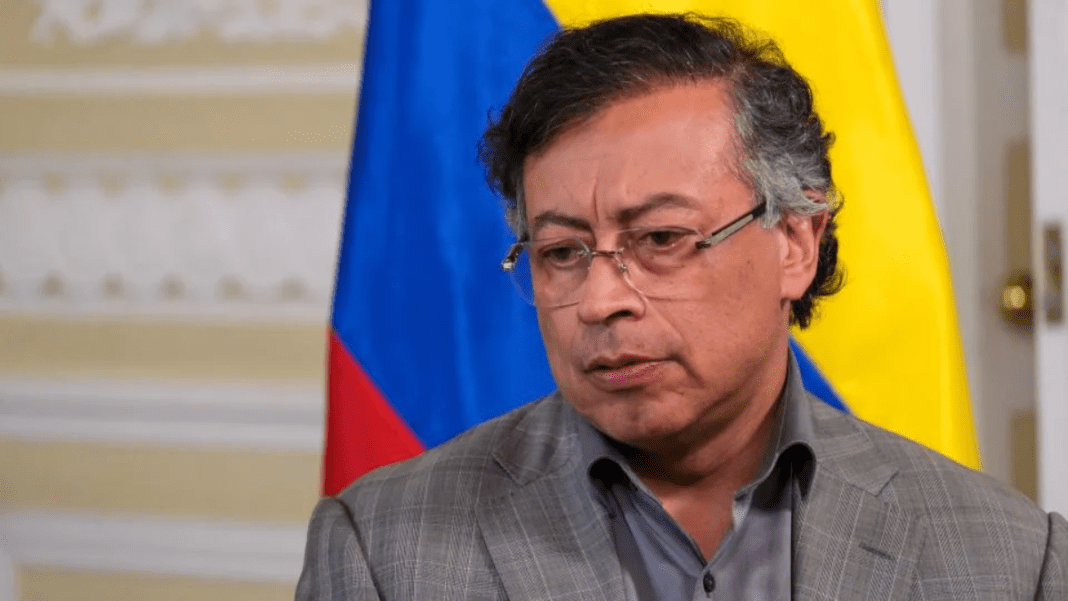Colombian President Gustavo Petro accused the United States of ramping up military activity in the Caribbean and Pacific not to fight drugs but to gain influence over Venezuela’s massive oil reserves. He said oil is “at the heart of the matter,” arguing that Washington’s pressure campaign is driven by energy interests rather than democracy or narcotics, further straining relations between Colombia and the Trump administration.
Rising Tensions Between the US and Colombia
According to President Gustavo Petro, the United States’ recent actions toward Venezuela are not mainly about stopping drugs. He said Venezuela is not a major drug producer and that only a small share of the global drug trade passes through the country. Petro believes that the focus on Venezuela’s vast oil reserves offers a clearer explanation for Washington’s pressure campaign.
Tensions between Petro and President Trump have grown since Trump returned to office. Petro has criticized US immigration policies, Washington’s support for Israel, and the increasing presence of American military forces near Latin America. This week, he accused the US of acting like an imperial power and argued that it should be treated as “one nation among others,” not as an empire.
Petro also shared a message for Americans, urging them to remember the special forces’ pledge to fight oppression. He repeated this message during a visit to the US, which he said led to the revocation of his visa after the UN General Assembly in September. His comments calling on American soldiers not to “point their rifles at humanity” angered officials in Washington.
In recent months, US actions have targeted Petro directly. The Treasury Department sanctioned him in October, accusing him of involvement in the global drug trade—a claim he strongly denies. Days earlier, Trump had threatened to cut all US payments to Colombia, arguing Petro had failed to stop drug production.
Petro insisted his government has seized more cocaine than any previous administration. He accused Trump of refusing to recognize this due to “pride” and because of Petro’s past with the M-19 guerrilla movement. He added that Washington appears to be comparing him to Venezuela’s Nicolás Maduro, a comparison he rejects.
Venezuela, Drug Trade Claims, and New Sanctions
The dispute grew more serious after the United States labeled the “Cartel de los Soles” a foreign terrorist organization, claiming Venezuelan President Nicolás Maduro leads it. Venezuela denies the accusation, and experts say the term refers to corrupt officials rather than a real cartel. Petro added that while Venezuela struggles with democracy, he has seen no evidence linking Maduro to drug trafficking.
International findings support Petro’s view. No Colombian investigation has found ties between Maduro and drug networks, and global agencies report that Venezuela does not produce cocaine. The United Nations and the US DEA confirm that most cocaine worldwide comes from Colombia, with 84% of the cocaine seized in the United States traced back to Colombian sources.
Unexplained Wealth Orders Unmask Money Trail of $225 Million in British Columbia
The situation intensified when a Colombian news outlet reported alleged links between Colombian officials and former FARC dissidents. The report claimed that officials shared sensitive intelligence and helped the groups acquire weapons. Petro denied the allegations but acknowledged that connections between officials and drug traffickers have existed in Colombia long before his presidency.
Despite these tensions between Petro and the Trump administration, the overall US-Colombia partnership remains strong. Colombia is still one of Washington’s most important security allies in South America and was designated a “major non-NATO ally” in 2022. US Secretary of State Marco Rubio stressed that the administration’s issues are with Petro himself, not with Colombia’s institutions or its people.
Petro Pushes Back Against US Accusations
Petro argues that the dispute with Washington stems not from drugs or democracy but from energy politics. He believes the United States is pressuring Venezuela mainly because of its vast oil reserves, a claim that adds a new layer to ongoing tensions.
His comments come at a time when strained diplomatic relations already fuel sanctions, military movements, and mutual distrust between the two governments. Petro’s position further complicates the political landscape surrounding Venezuela.
As accusations continue from both sides, the relationship between Petro and the Trump administration seems to be heading down a difficult path. Deep disagreements over power and influence in Latin America remain at the center of the conflict.

